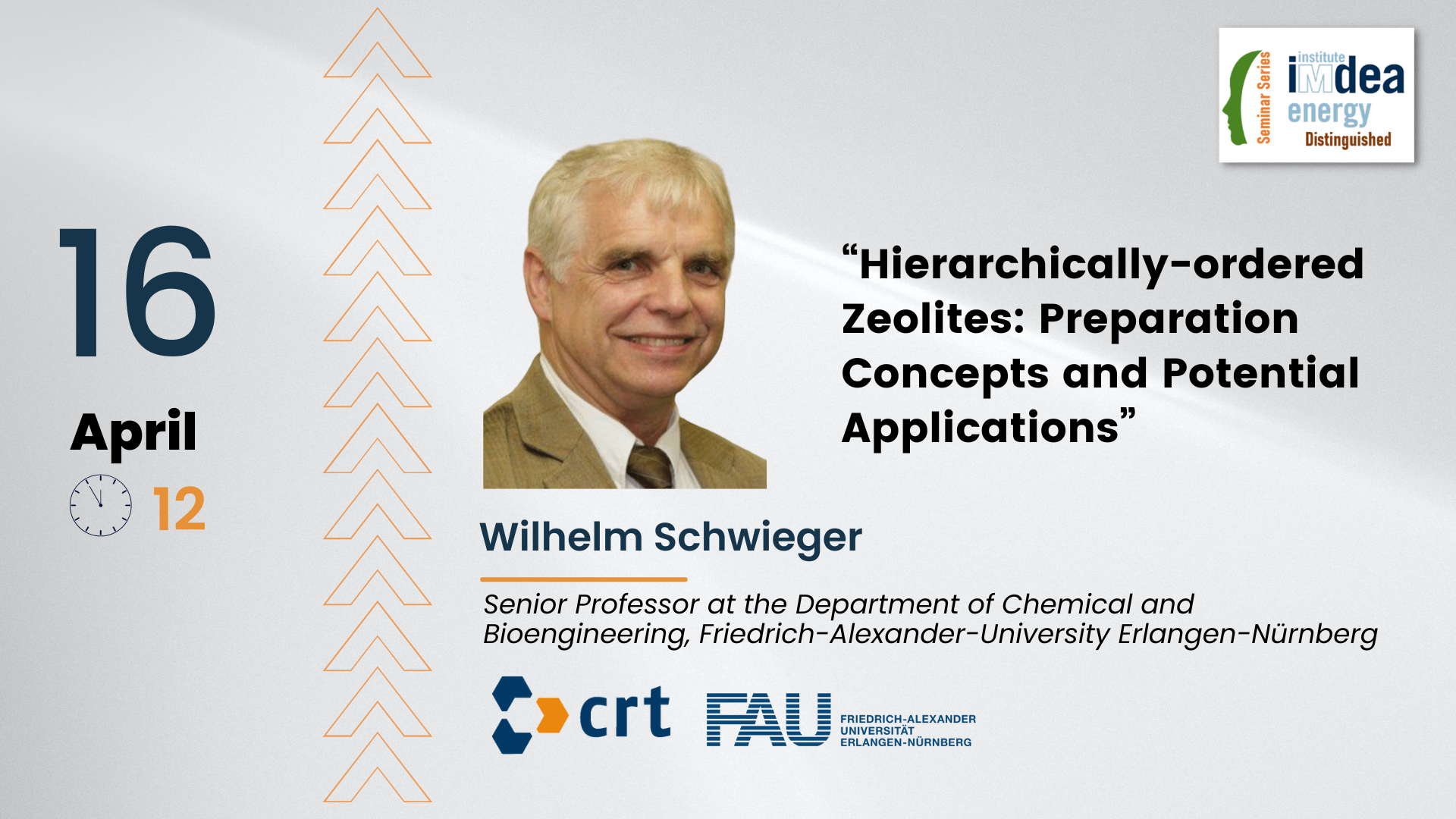Distinguished seminar: “Hierarchically-ordered Zeolites: Preparation Concepts and Potential Applications”

Short Bio
Wilhelm Schwieger is a seasoned Senior Professor at the Department of Chemical and Bioengineering, Friedrich-Alexander-University Erlangen-Nürnberg, with a distinguished academic journey spanning over five decades. He holds a Diplom and PhD in Chemistry from the University Halle-Wittenberg, where he later attained his Habilitation. Dr. Schwieger’s research interests encompass diverse areas including porous and layered materials synthesis, structured reactors, catalysis, and adsorption. With a rich bibliography and a career marked by prestigious fellowships and awards, he stands as a leading figure in the field of chemical engineering and catalysis.
Summary
Hierarchically organized zeolitic composites can benefit in their applications from both, the zeolitic function (e.g. separation, activity) and the function of the support (e.g. pressure drop reduction, mechanical stability, improved mass and heat transport) Structured and multifunctional reactors have drawn much attention as a promising option to achieve process intensification in the chemical industries. Thus, esp. structured monolithic reactors can be utilized as the carrier for active components like zeolites useful as a catalyst. Such a surface modification (functionalization) of the monolith surfaces with an additional porous material of a different pore size regime results in a hierarchically organized system. In this regard, already the use of catalytically interesting microporous zeolites allows the development of a hierarchical porosity on either two (micro-/macro) or three (micro-/meso-/macro) porosity levels.
This contribution will focus on both – the trends and advances in the field of (i) preparation and properties of hierarchical zeolites and (ii) the resulting zeolitic composites using e.g. POCS (periodic open cellular structures) as the carriers. Thus, methods for the preparation of hierarchical zeolites, which contain at least two porous systems, will be analysed and classified. In particular, this contribution focus on a synthesis route for zeolite single crystals with additional intracrystalline macropores. To introduce catalytically active sites, aluminium and titanium containing macroporous MFI materials have been prepared and tested in different reaction.
The event is finished.
Date
- Apr 16 2024
- Expired!
Time
- 12:00 - 14:00
Location
- Auditorio IMDEA Energía


